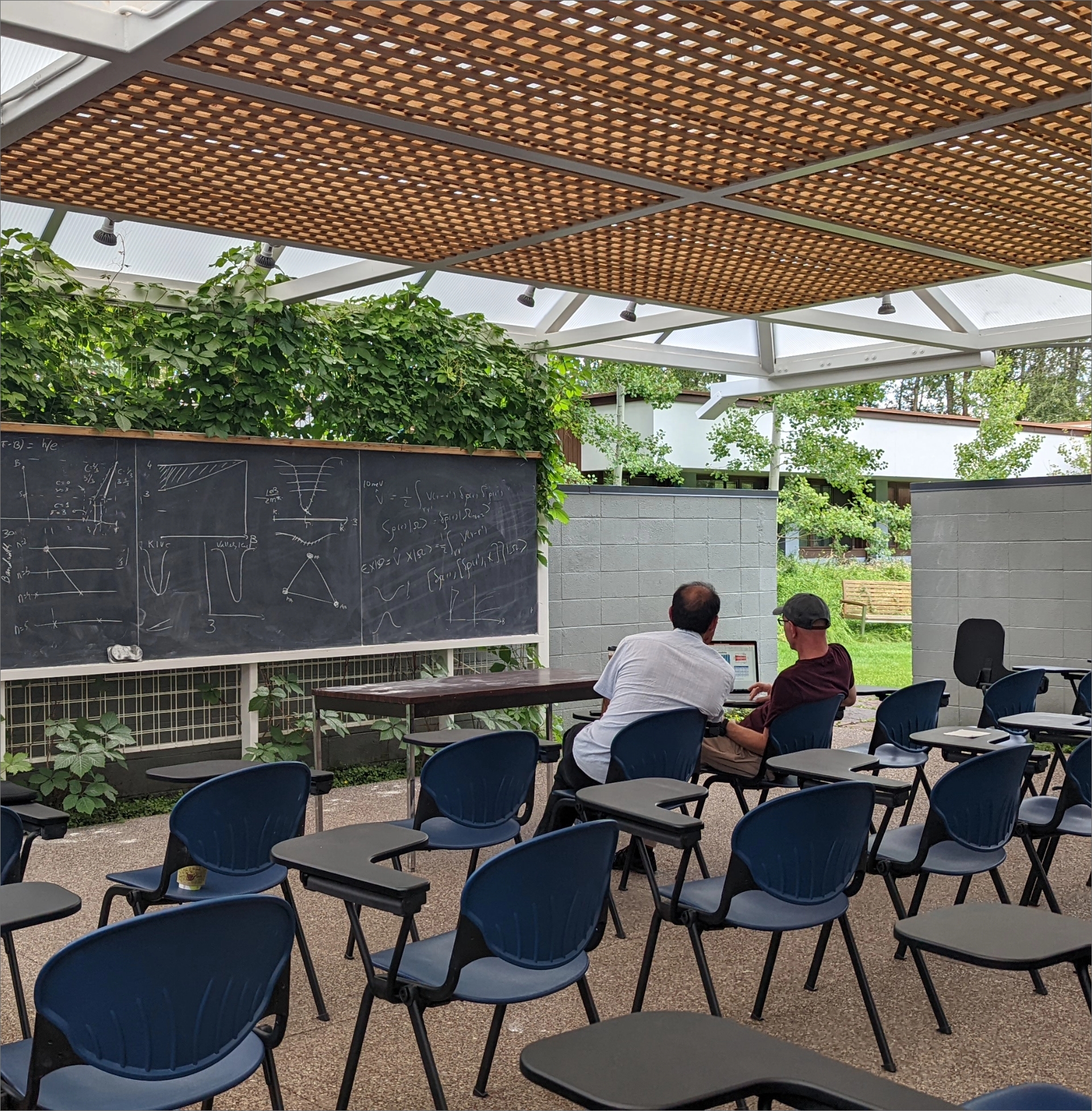
Summer Program
The Microscopic Origin of Black Hole Entropy
June 2–30, 2024
Organizers:
Vijay Balasubramanian, University of Pennsylvania
Javier Magan, Instituto Balseiro
Gustavo J Turiaci, University of Washington
Herman Verlinde, Princeton University
Bekenstein and Hawking proposed, on the basis of general relativity and quantum mechanics in curved spacetimes, that black holes behave as thermodynamic objects, and carry a large and finite entropy proportional to its event horizon area in Planck units. An outstanding question in theoretical physics in the intervening decades has been to explain the origin of this universal formula and its implications to a theory of quantum gravity. Recent years have witnessed groundbreaking progress towards this goal from different corners of the field such as String Theory (a theory of quantum gravity), quantum information, quantum chaos, the fuzzball program and soft modes in gravity. In particular the gravitational path integral has been a key tool in combining much of these progress. It is then timely and important to bring together these different communities, so that recent discoveries can be shared and critiqued, and next steps can be envisioned. The purpose of this workshop is to accomplish this task.
Summer Workshops
The summer program, running for 16 weeks from late-May to mid-September, emphasizes exciting open problems at the cutting edge. Two or three concurrent workshops, each with a specific focus selected for timeliness and the potential for breakthroughs and of two to five weeks in length, establish the main themes of each week, with twelve or thirteen different workshops each summer, balanced across fields including particle physics, string theory, astrophysics and hard and soft condensed matter physics, as well as emerging areas including biological physics, ultra-cold atom physics, quantum information, and physical mathematics. Additional researchers participate in small working groups or as individual researchers. This framework is designed to maximize informal interactions and free discussion within each area and to promote cross-fertilization between different areas via the common language of theoretical physics. Participation in the summer program of the Aspen Center for Physics is by application and subsequent invitation only. View past workshops.
